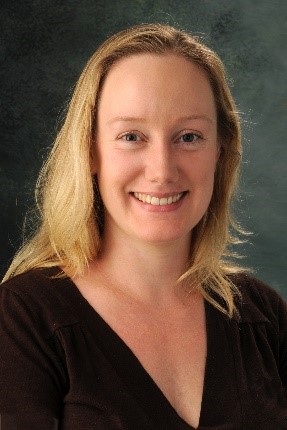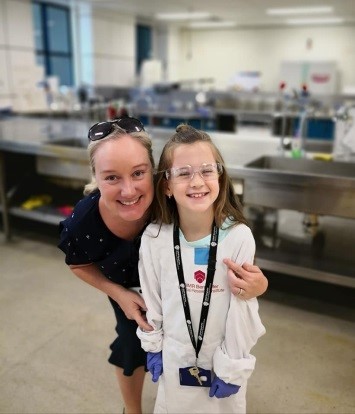Today we announced a $2 million investment in cancer research projects in Queensland.
Over the two years, 10 Queensland research teams will receive $200,000 toward their projects.
The research grants will fund world-leading studies into various areas including cancer vaccines, multi-cancer risk genes, immunotherapy, cell death, drug resistance, bowel polyps, and more
This funding will give Queensland researchers a reliable source of income, which makes long-term research and trials possible.
We caught up with grant recipient Associate Professor Vicki Whitehall from QIMR Berghofer Medical Research Institute to see how being awarded a grant makes a difference to her work.
Research Grant Project – High Risk Sessile Serrated Adenomas of the Colorectum
Associate Professor Vicki Whitehall, QIMR Berghofer Medical Research Institute

What is your area of research and why were you attracted to it?
I work on bowel cancer, in particular I want to identify gene changes that promote the growth of polyps and the progression of these polyps to cancer. Bowel cancer is such a common disease, with over 15,000 new diagnoses in Australia annually. I hope my work will reduce this number and in particular reduce the number of patients who do not survive this disease.
Can you tell me about the Cancer Council Queensland funded project you’re working on?
The focus of this project is a particular type of polyp called a ‘sessile serrated adenoma’. This polyp was previously thought to have no potential to progress to cancer, but in the last 15 years we have proven that it actually accounts for at least 20% of all bowel cancers. These polyps have very different clinical features and gene changes compared to other polyps and this has made them difficult to detect and difficult to assign appropriate surveillance guidelines. In this project we will investigate gene changes to predict which of these polyps have potential to progress to cancer, which will inform surveillance guidelines.
What do you hope the outcome of this project will be?
We hope to identify markers that will be used clinically to predict which patients are at highest risk of cancer so that colonoscopic surveillance can be appropriate directed to these patients. Another important outcome will be the identification of patients at minimal risk. This will allow clinicians to reduce surveillance for these patients, reducing potential complications of colonoscopy as well as cost.
How will this have an impact on cancer patients?
Appropriate surveillance will result in the removal of polyps before they progress to cancer. This will reduce the number of patients diagnosed with cancer.
Why is research so important?
Research has made an enormous impact on the quality of our lives. Many diseases have now been eradicated. We have made tremendous impact in all aspects of cancer diagnosis, management and outcomes. Many types of cancer can now be cured or treated as a chronic disease, rather than being a terminal diagnosis. My hope is that in the coming years we will significantly reduce the number of cancers diagnosed, and for patients where a cancer is identified, that an enduring cure will be possible.
What drew you to a career in science?
I have always loved the excitement of solving a puzzle and from when I was young I planned to be a scientist. My grandfather died from cancer when I was 12 years old and that is when I decided to research cancer. For this reason I am particularly motivated to encourage young people with a passion for research.

This photo is from a recent visit I had from a 10 year old already excited by a career in science.
What are you most proud of in your research career?
I am particularly proud of my contribution to the recognition of sessile serrated adenomas as having potential to progress to cancer. I have seen this theory evolve from the hypothesis stage to changing clinical guidelines. I have successfully fostered collaborations that have brought together scientists, gastroenterologists and pathologists to plan projects and ultimately improve patient management.
Why are the research grants that CCQ award so important?
I am incredibly grateful for the support of CCQ. This project would not progress without the very generous contributions from donors and supporters. With government funding at record low levels, it is philanthropic support that enables labs such as mine to persevere. Research is a challenging, rewarding, but ultimately very difficult career. Community support and encouragement, as well as the knowledge that your research is important at the community level, is enormously encouraging.
Thank you to everyone who supports our cause. You may be saving the life of someone’s loved one. With one in two people diagnosed with cancer in their lifetime, it may just be yours.

